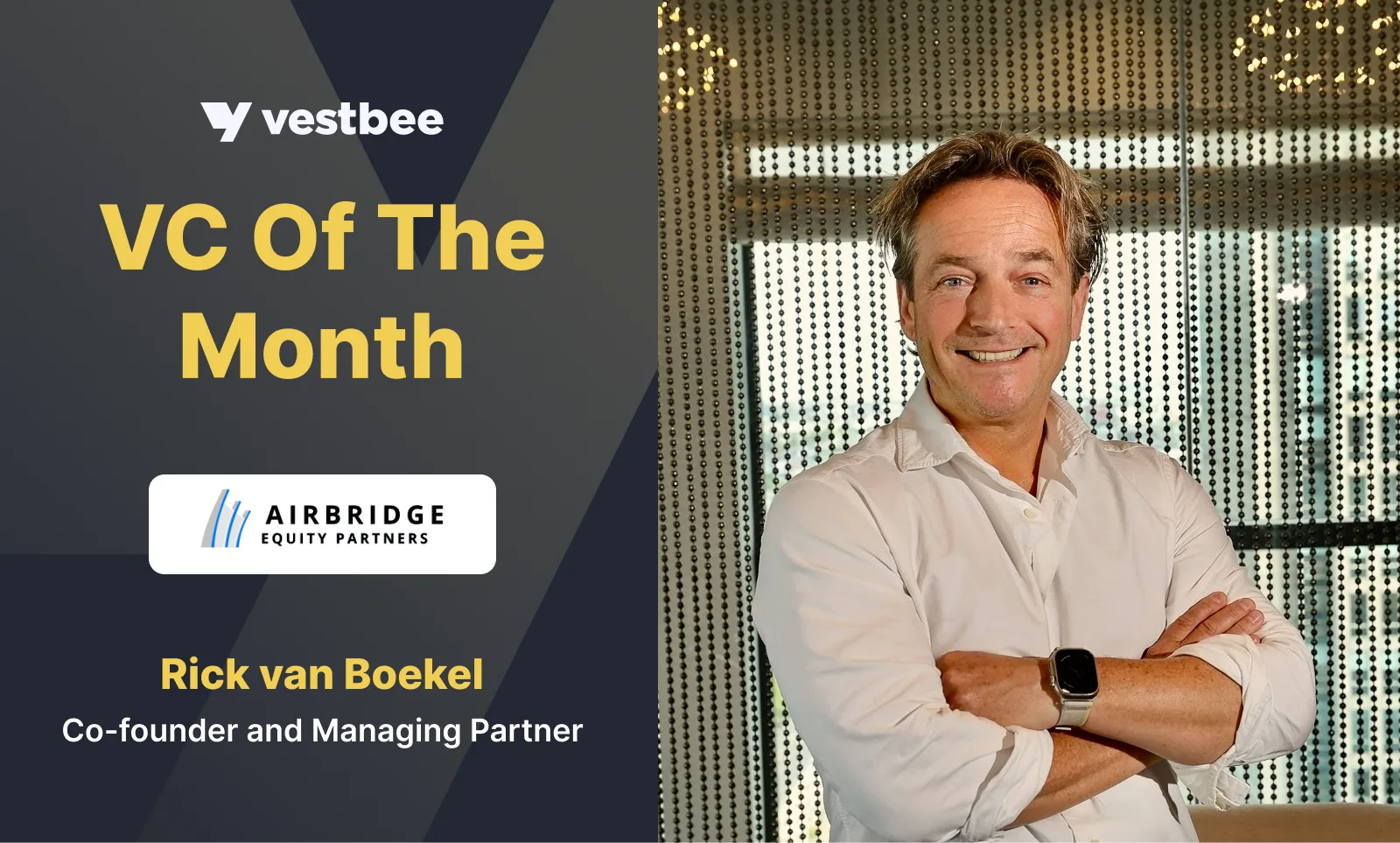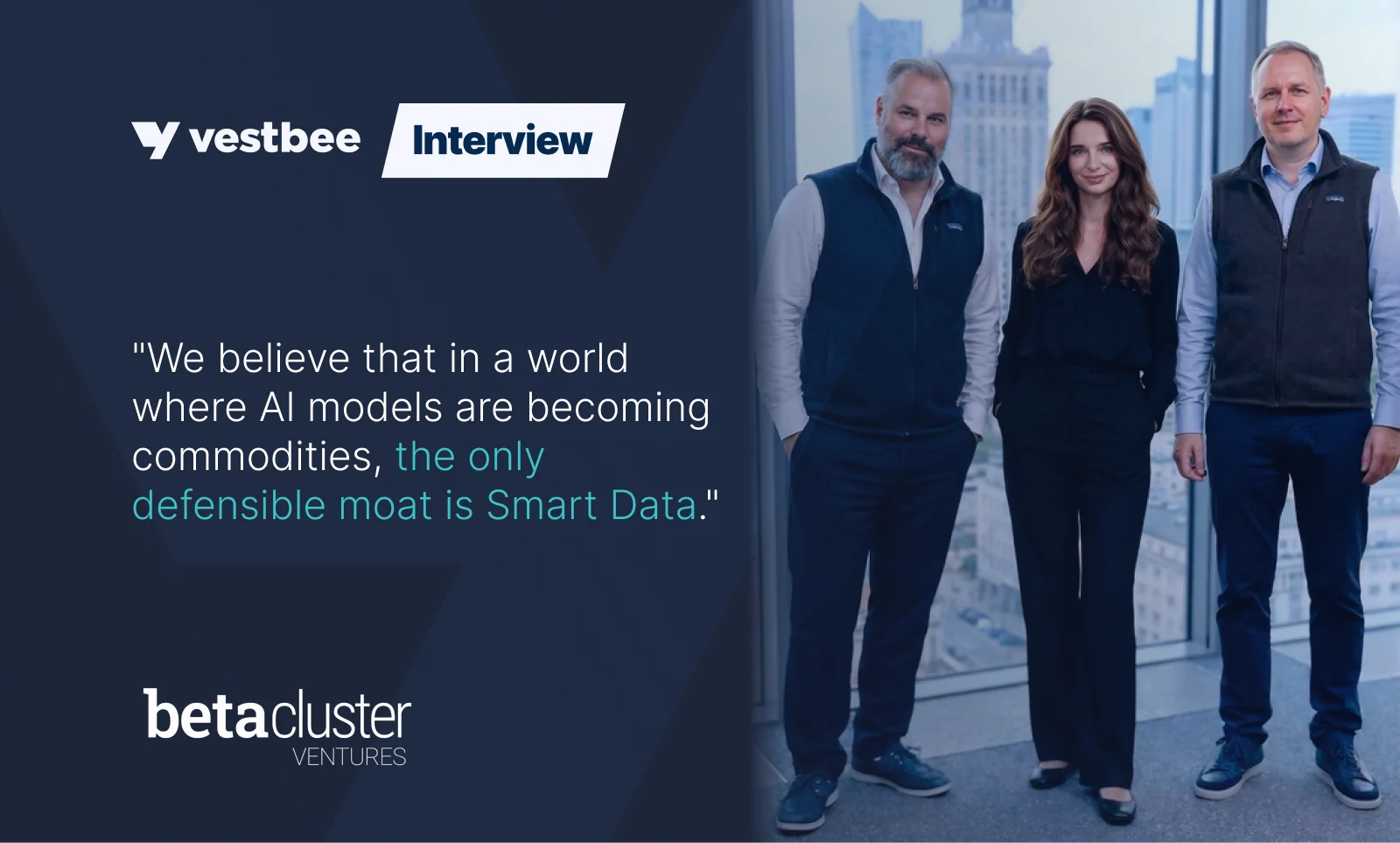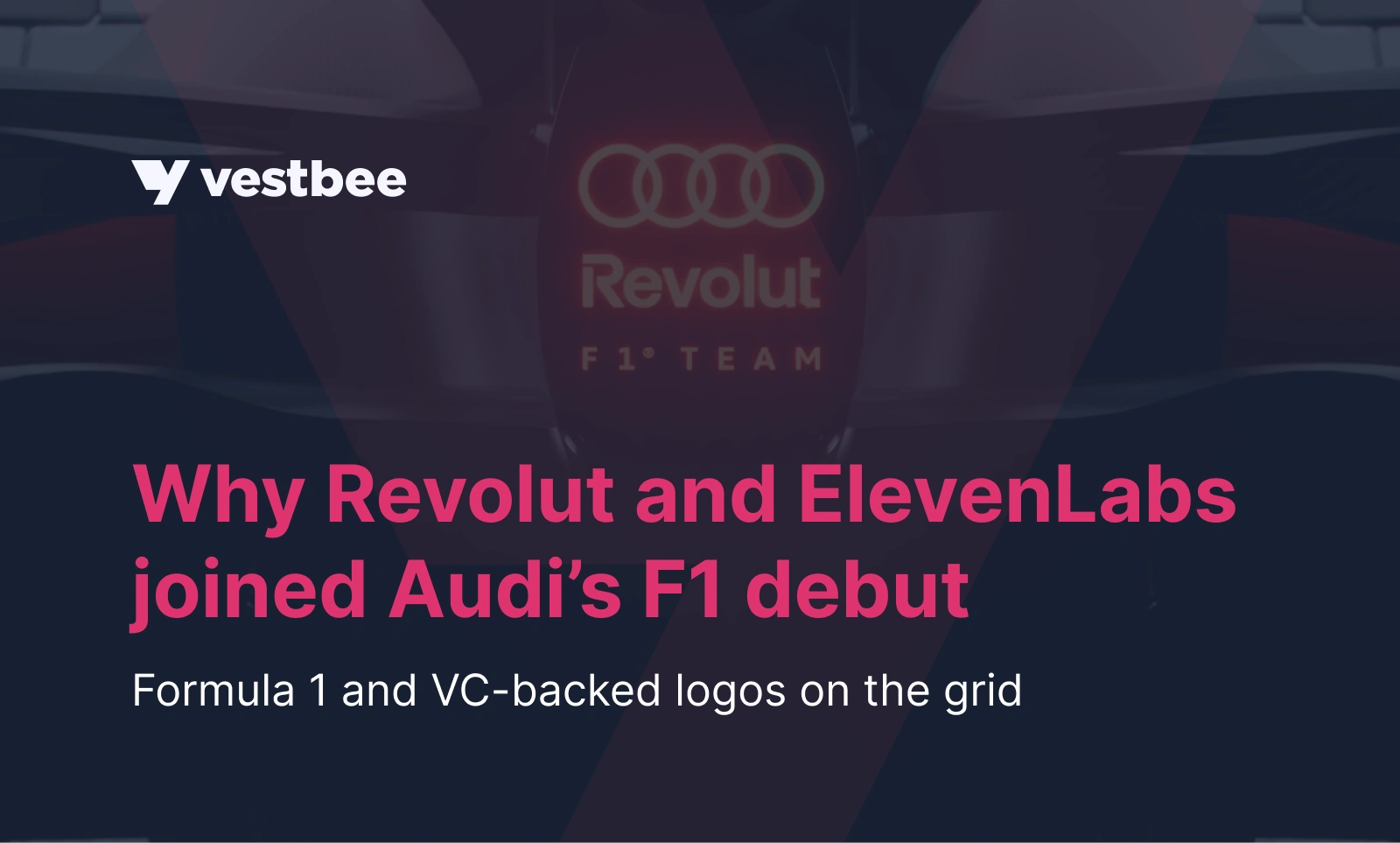EIT InnoEnergy is a well known Pan European investor in the cleantech ecosystem. It has a strong focus on impact technologies including renewables, mobility, batteries, hydrogen, storage, smart cities, energy efficiency, smart grid and circular economy. The fund has a worldwide reach with offices in Poland (responsible for the geographical region ranging from Estonia to Turkey), Germany, Scandinavia, the Netherlands, Iberia, France, U.S and so far invested in over 300 portfolio companies.
Fund Strategy Overview
Geography: Europe
Preferred industries: Cleantech, Mobility, Batteries, Renewables, Hydrogen, Storage, Micromobility
Investment ticket: 100k-5M EUR
Company stage: preferably seed with initial traction
Product type: B2B, B2C, B2B2C, B2D, B2G, extremely highly dependent on the product/service
Product stage: concept, demo, MVP/beta, ready product, mature product, preferably PoC +
Revenues: Depends on other growing KPIs, preferably first revenues in
Q&A with Łukasz Skarka, Head of CEE Early Stage Cleantech Investments
What are the five main things you look for in a startup?
Product/Market fit - explanation of the solution in the way suitable to a five-year-old. Engineers tend to complicate their message. For us, simplicity is key. Answer to why before the how. Explanation of product/service for the end-users (i.e. customer, regular joe) is crucial and helps them understand the idea's impact on their life. Next, a clear need for the product. If customers are not in dire need of the product – something has to change.
Aspiration & Direct-Impact - we identify innovators making a lasting impact in sustainable energy and check if there is an aspiration for impact - i.e. something that nobody believes entrepreneurs can achieve.
Team - one person does not make the change alone. The team is a vital component that again, can take a startup's dreams and turn it into reality. An extremely strong and diversified team is the driver to become the next market leader.
Scalability - having a defined path for growth and scaling is the next step to verify – this does not necessarily mean a startup has to produce complicated business plans or multi-spreadsheet excels. What a startup needs though, is industry expertise with an identified plan to grow, both as a technology and as a team.
Execution - entrepreneur needs a plan and knowledge on how to deliver it. It’s about execution. At any given moment, there are about 20 teams around the world that have the same application and the same idea to address the same challenge. They are working day and night, so make a plan and get to work, to perform better. In terms of early-stage startups, founders need to get the real story. Once they listen to the needs and/or problems of the customers and those stemming from the market they gain narratives that start building the big picture. Then they can reflect and seek out a real solution, and act upon it. The VC - startup relation is based on mutual trust and operational discipline – there has to be a good working relation and common understanding for the cooperation to flourish.
What disqualifies a startup as your potential investment target?
Besides an idea that is out-of-scope (although we try to be flexible), it all comes down to people. Does the product or solution align with the market needs? Is the product-market fit transient? The teams need to get the real story. If there is no clear pull from the market, no matter how high the investment ticket or the size of the market is, the project’s lifespan is short-lived. The idea and the team must be dynamic and adaptive and remain that way.
What in your opinion sets the best founders apart from the rest?
The best founders we work with or have observed in becoming the next market leaders, are the ones who have a combination of characteristics and share a healthy hard-working attitude. They are experts in their respective areas and have core leadership skills, making it easier to follow their path both for the customers and the team.
What should startups take into account before making a deal with a VC fund?
Probably this is a question that should not be answered by a VC 😉 Definitely there are core questions a startup needs to ask itself – is this a good match? Is there something that sets this particular VC apart from the others? Do we trust them? Will we be able to work together? Do we share a common approach and vision for the market?
It’s a two-way street, an investor needs to see the synergy with the startup as much as the startup towards the investor.
What is your approach to startup valuation and preferable share in the company?
It is extremely individual. We like to know the logic behind the valuation – why is it that exact amount? Is it your wish or are there metrics to support that?
Are there other startups on the market with a similar stage of development that have comparable multiples? What is the growth potential of the company and its metrics in the future? We need to understand all of those elements for a better vision of the valuation. The same story goes for the preferable share, with a balance to be struck between the status as of today and the non-money value we can bring to grow the valuation of the startup.
How do you support your portfolio companies?
After scrutinizing the business case, we look for the ways, we can support the case, not only financially (opportunities for decreasing CAPEX and RISK exposure) but also in providing services of added value (screening for a regulatory framework for technology implementation, team development, the supply chain, the off-takers, startup intellectual property and intelligence strategy, the growth in other markets).
We take it case-by-case and tailor our offer to fit the needs of the given team. Instead of throwing a unified set of services at a startup – we analyze together with the founder what are their current needs and what they plan to achieve in the following months.
By leveraging our unique network that we have gathered over the years, we are able to open doors for the startup to major players on the market.
One of the most important aspects is preparing the startup for the next financing rounds and supporting it with the Venture Capital network community that will enable growth.
What are the best-performing companies in your portfolio?
EIT InnoEnergy’s portfolio (300+) is quite diverse and continuously growing, but let’s provide an example to help visualize those 5 key startup elements mentioned earlier– Northvolt, our first unicorn, developing the world’s greenest battery cell and largest Gigafactory in Sweden. But back in September 2016, it was just two innovators who came to us with their aspiration, what they wanted to do was quite simple - the cleanest battery in the world. Their aspiration was to be much more cost-effective than other players around. So, they created a team out of 43 nationalities, had a plan and made an impact on the transport revolution as we know it today. That initial aspiration has turned into a €1.6b valuation (Dec. 2019).
In the upcoming months keep your eyes out for these teams: Skeleton Technologies, DUCKT, HEPTA Airborne, ferrroamp and FlexiDao.
What are your notable lessons learned from investments that didn’t work out as expected?
Keep moving and adapting. We understand that even the most innovative technology will not take off without two things: a market-ready for it and big enough; and a team that can carry the project and all that comes with it.
What are the hottest markets you currently look at as a VC, and where do you see the biggest hype?
It’s hard to tell because there is an upside and a downside to the hyped areas. There is a lot happening within them, on average the valuations tend to be too high, and competition is fierce. We believe that hydrogen is the future of energy in the mid to long run, batteries and storage are, and always have been, our top priority (hence EIT InnoEnergy operating the European Battery Alliance) and mobility (with micromobility in the scope) will be playing a vital role in the cleantech revolution.
In your view, what are the key trends that will shape the European VC scene in the coming years?
There is a VC investment boom in CEE. What we see in Europe, is much more seed-stage money (especially with governmental support) available, than for support in the later stages. Also, there is a need for professionals coming from different countries with relevant market experience. With the recent transition towards a more online world-connections, conversations, and access are all terms that are being redefined. Hence shaping the European VC scene in an unseen way.
Related Posts:
VC Of The Month - Speedinvest (by Magdalena Balcerzak, Manager, Vestbee)
VC Of The Month - Earlybird Digital East Fund (by Magdalena Balcerzak, Manager, Vestbee)
VC Of The Month - Market One Capital (by Magdalena Balcerzak, Manager, Vestbee)







